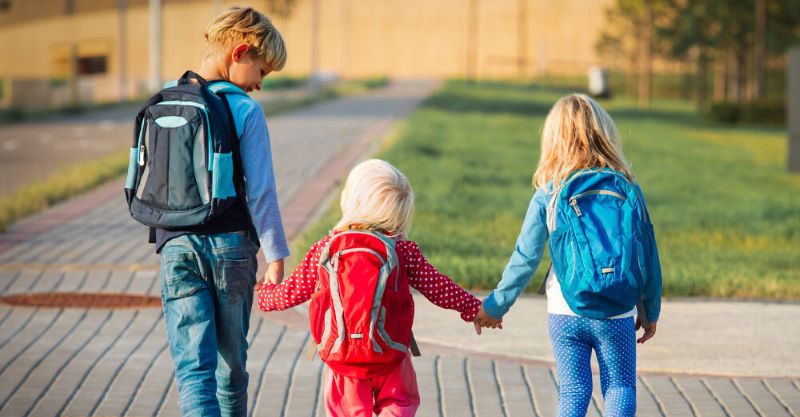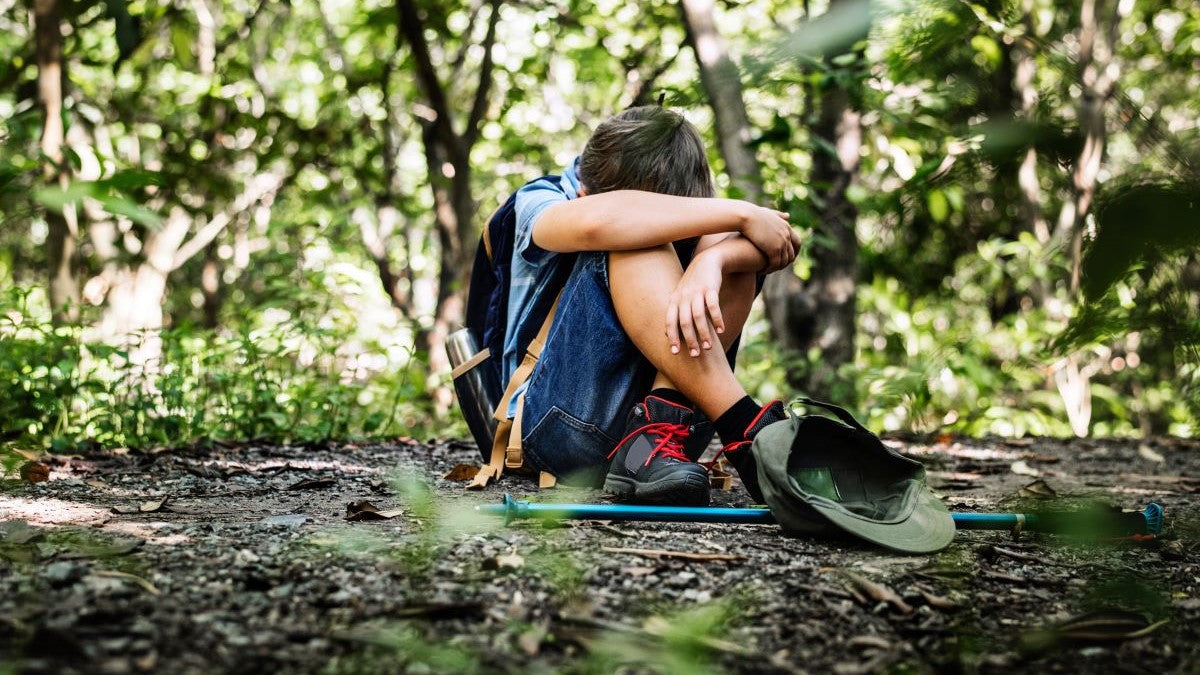It’s a parent’s worst nightmare—their child has gone missing. Unfortunately, 2,300 children go missing every day in America.
Many of these children go missing because they get separated from their parents.
One of the most common times children are separated from their parents and go missing is during emergencies, such as natural disasters.
According to the CDC, “Following Hurricanes Katrina and Rita in 2005, the National Center for Missing and Exploited Children’s hotline for those events received over 34,000 calls. In addition, it took six months to reunify 5,192 missing children and their families.”
While we can’t predict when a natural disaster will occur, we can take preventative measures to ensure our children do not go missing during an emergency.
1. Teach Kids Their Contact Information
The most important thing you can do to keep your kids safe in an emergency is to make sure they know their contact information. This means helping your kids memorize their full names, their parents' full names, their address, and your cell phone number.
If your child is too young to memorize all this information, write it out on a contact information card, laminate it, and place it inside of your child’s book bag, coat, etc.
Additionally, make sure you update your family’s emergency contact information every school year (and every time it changes).
2. Decide on a Family Meeting Place
Kids should always know how to escape their home in the event of an emergency, such as a fire. But it shouldn’t stop there.
Families also need to decide on a family meeting place if something happens while you are not together, such as grandma’s house, a church in your neighborhood, or a playground.
In addition to having a regular family meeting place, choose a family meeting place whenever you go on a public outing, such as meeting outside a certain fair ride.
3. Discuss Rules for Outings
Emergencies can happen at any time and in any place. That’s why it is important to establish some rules for outings when your kids are young.
For example, teach the kids that if they can’t see you, you can’t see them. That means they are out of the safe zone. Explain the importance of looking both ways, obeying you in public, and staying alert.
Related Read: Survival Skills for Kids: Outdoor Survival Games
4. Go Over Different “What If” Scenarios
While you don’t want to instill fear, it is important to go over different emergency scenarios with your children.
As you teach them contact information and go over the family meeting place, talk about possible situations when they may have to use these things. Stick to the basics to avoid scaring them.
5. Implement the Buddy System

It’s important to always encourage your children to use the buddy system (even as they go off to college). Having a buddy when they are out is an extra measure of safety.
6. Find Out School Emergency Plans
If your child attends daycare, school, or camp, ask about the security measures they have in place.
In addition to securing gates and doors, ask about their emergency plans. Where will children go in the event of an emergency? How will parents be alerted of emergencies?
7. Explain When to Stay and When to Move
When kids go missing, their first instinct is to go looking for their parents. This is usually a mistake.
Tell your kids to stay where they are, and you will come find them. If they are running around at the same time, it’ll make it harder for you to find them.
Officers Drogin and Carter for Very Well Family suggest, "If your child is in a safe place, then they should remain where they are as their parent(s) will likely retrace their steps. If they are in a position of danger, they should relocate to a position of safety and if possible, contact an adult."
Point out that dangerous places mean things like deep water, busy roads, or off a marked trail.
8. Point Out Whom to Ask for Help
It’s also important to talk to kids about whom they should ask for help if they are separated from you.
Since kids are often told not to talk to strangers, this can be confusing for them.
Tell them to look for the helpers, such as police officers, firefighters, security guards, park rangers, or employees. Point out how employees dress (like their shirts or name badges).
It’s wise to suggest they look for moms, too. Moms with kids tend to be a less threatening option, and they tend to be willing to help lost children.
Related Read: Preparing Children with Emergency Signs
9. Divide and Conquer When Looking

Should your child go missing, your instinct will be to run and search. This may not be the best course of action.
Often, children will retrace their steps back to you or find their way home. If you are out searching, you may miss them.
If at all possible, divide and conquer. Have one person stay at the spot where the child was last seen and have a second person go searching for the missing child.
10. Provide a Tool for Communication
When you decide to give your child a cell phone is a personal decision, but it is a useful tool for communication in emergencies.
In addition to being able to communicate via calls or text messages, you can also find their location using the device’s GPS.
If you don’t believe your child is old enough for their own phone, make sure they know how to access your cell phone to call 9-1-1 in the event of an emergency. Unlike our generation that was simply taught to dial 9-1-1 on home phones, today’s generation needs to know how to unlock a phone, find the emergency symbol, then dial.
For those who don’t feel comfortable giving a young child a cell phone, consider a kid’s smartwatch that allows for location tracking and calling for only a select number of people you allow.
Many parents of elementary kids who ride on school buses utilize these tools to know their children have made it to and from school safely.


1 comment
James Maher
This is great information and we have 5 kid’s its hard to keep an eye on them all in the good times we all need more information like this
Thank you